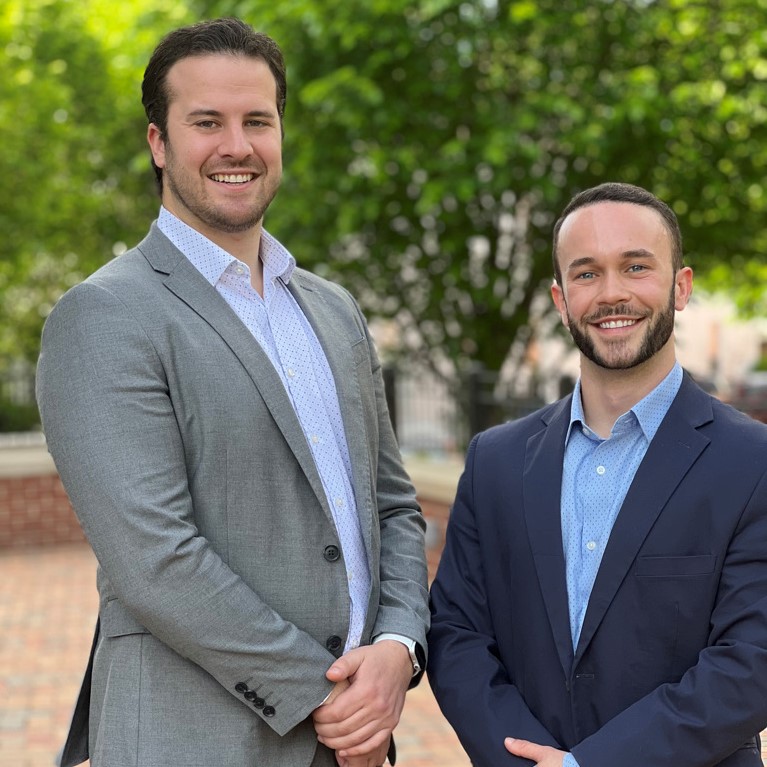By: Javacia Harris Bowser
For ASF Fellow Mack Bozman, enlisting in the Army National Guard changed his life.
“I wanted to be a doctor, and the Army was a good way to boost myself on that path,” says Mack, who served as a combat medic and is currently in his third year of medical school at the University of Alabama at Birmingham (UAB) Heersink School of Medicine.
Though Mack admits his time in the Army had both highs and lows, he feels he’s a better person because of it.
“It was really good for discipline, and it was really good, believe it or not, for social skills,” he says. “What’s invaluable — you get time to talk to patients, take care of patients and treat patients. It was a lot of practice, reaching out to people, talking to them, and developing rapport. And all that helps with medical school, and it also helps with this ASF program that we’re doing.”

Mack and his ASF project partner Anthony Wilson are creating a mentoring program for fatherless youth and underserved young men and women in Huntsville and surrounding areas. Working with the counseling department of Grissom High School, Mack and Anthony will pair high school seniors with professionals in the fields the students are most interested in.
Mack’s time in the miliary was one of the inspirations for the project.
“A lot of people who enlist usually don’t go to college and usually have tougher lives growing up,” he says. “You’d be amazed just how many of them have such horrible childhoods and a mentor would have been a big deal to them, just like it would have been a big deal for me growing up.”
While the on-the-ground medical training Mack received in the National Guard was invaluable, hearing the stories of the other people in his unit was priceless.
“That really just helped develop the empathy that I feel for everybody,” he says.
Creating Opportunities
A native of Ocean Springs, Mississippi, Mack was eager to leave home after high school.
“My father wasn’t in my life, and I had a tough relationship with my stepfather,” he says. “There was nothing for me there, no opportunities. So, I used [the National Guard] to get out. And it was good for that reason, and I got to see a lot of the United States and also the world.”
Just as the National Guard created opportunities for him, Mack hopes he and his project partner Anthony can help create opportunities for youth in Huntsville. With the help of teachers and the school principal, a guidance counselor at Grissom High School has identified 14 students who would benefit most from the mentoring program.
“Anthony and I, we kind of were scrappy growing up,” Mack says. “The doors weren’t opened for us. We kind of had to force them open and when we first started undergrad and then entertaining the idea of going to med school, it was like, you walk into a room with a doctor and you just don’t even know what to say. You just feel so small.”
Eventually, both Mack and Anthony would find mentors that would show them that becoming doctors wasn’t out of their reach.
“Having that connection, that mentorship, really demystified the idea of what it meant to be a doctor,” Mack says. And now he wants to help other young people find the mentors they need.
“We want these kids to go into the next phase of life with some connection, so they don’t have to feel insecure about where they are,” he says.
Furthermore, there are lots of harrowing statistics that show that the odds are stacked against young people from single-parent households. But Mack hopes his program can help some young people write a new story.
Universal Language
Mack says the military taught him how to connect with others, even despite language barriers.
While deployed in Northeast Syria, Mack was charged with teaching local allied forces basic life-saving skills.

“But they didn’t speak any English and we didn’t speak their language,” Mack says.
Nonetheless, by demonstrating things such as reacting to gunfire and administrating tourniquets, Mack was able to do his job. And he had some fun along the way.
“It was so fun because there was a universal language of joking around and laughing,” Mack says. Slapstick physical comedy was something they all could understand, and laughter helped them build bonds across cultures.
“It was nice to have those types of reprieves from everything else that was going on,” Mack says.
Mack recently decided that after medical school he will specialize in psychiatry.
Looking back, however, Mack realizes that the military planted the seeds for this years ago.
“I was young. I was 18 or 19, so in the beginning, it was just fun to shoot all the big weapons and rocket launchers and stuff,” Mack says with a laugh. But over time he often found himself helping other people in his unit work through complex issues. Hearing their life stories changed his.
So, when he started his rotation in psychiatry, he soon knew it was a perfect fit.
“I just fell in love with helping people,” Mack says, “and it was easy for me to connect with them because of what happened in my own life.”


